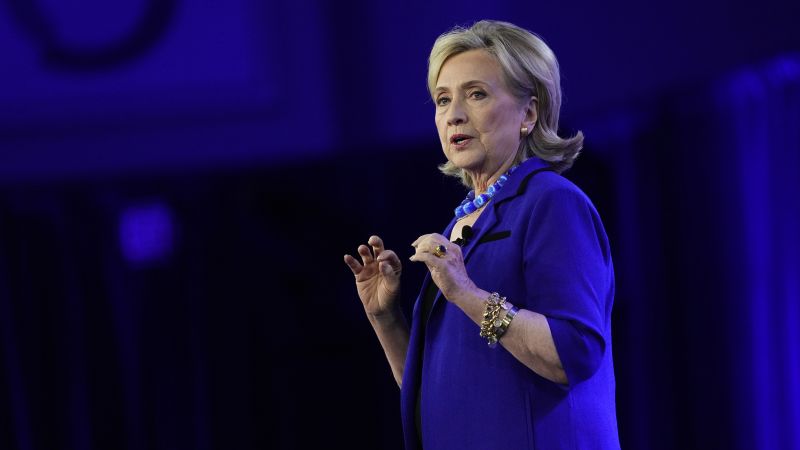The women who supported Hillary Clinton’s 2016 presidential campaign carry stories of disappointment from the night she lost. Many recall their feelings of sadness and frustration, including Bishop Leah Daughtry, who spent three days in bed after the race was called. Now, eight years later, Clinton is set to address the Democratic National Convention, this time in support of Vice President Kamala Harris, the second woman to win a major party nomination. Daughtry sees this as an opportunity to make up for what they couldn’t achieve in 2016 and to rally support for Harris.
For Democrats who were hoping for Clinton to make history as the first female president, Harris’ sudden rise is seen as a thrilling surprise and a chance to finally break the glass ceiling. Clinton’s presence at the convention is a testament to this sentiment, as she plans to speak about the future and the progress that Harris symbolizes. Clinton’s speech is expected to be upbeat and focused on the momentum generated by Harris, while also addressing the challenges Democrats face leading up to Election Day.
Clinton’s relationship with Harris dates back to the campaign trail, and she has expressed her full support for the vice president’s candidacy. Clinton is expected to touch on the proverbial glass ceiling that she was not able to fully break, highlighting the progress that has been made and the potential for Harris to shatter it. Her speech will also address the long road ahead and the familiar challenges from the Republican playbook. Clinton’s role in supporting Harris is seen as vital due to her experience running against Trump in the past.
Former Clinton campaign surrogates and staffers now supporting Harris praise the vice president’s campaign for the momentum it has built. They see Clinton’s campaign as part of a legacy that helped change the perception of who can run for president, along with other pioneering candidates like Rep. Shirley Chisholm. Clinton is viewed as having paved the way for Harris and is seen as having seeded the field for future female candidates. While Clinton and Harris share Trump as their opponent, their circumstances and approaches to the campaign are notably different.
The aftermath of the 2016 election has been a period of reflection for Clinton, who has acknowledged mistakes and expressed her thoughts on the election in her memoir “What Happened.” She has continued to engage with Trump and comment on political issues, while also supporting President Joe Biden in the 2020 election. Clinton’s experience in running against Trump and the lessons learned from the 2016 race are seen as valuable insights for Democrats moving forward. Her warnings about the importance of voting and the potential consequences of not doing so have proved prescient.
The 2016 election sparked a wave of women’s involvement in politics, driven by disappointment over the missed opportunity to elect the first female president and the need to counter Trump’s controversial statements and policies. Women’s participation in politics saw a surge after Trump’s inauguration, leading to events like the Women’s March and the formation of groups like Red, Wine and Blue. EMILY’s List, which supports women candidates who back abortion rights, saw a significant increase in interest from women seeking to run for office, indicating a shift towards greater female representation in politics. The 2020 election saw a diverse group of Democratic women running for the nomination, including Harris, paving the way for future female candidates.













